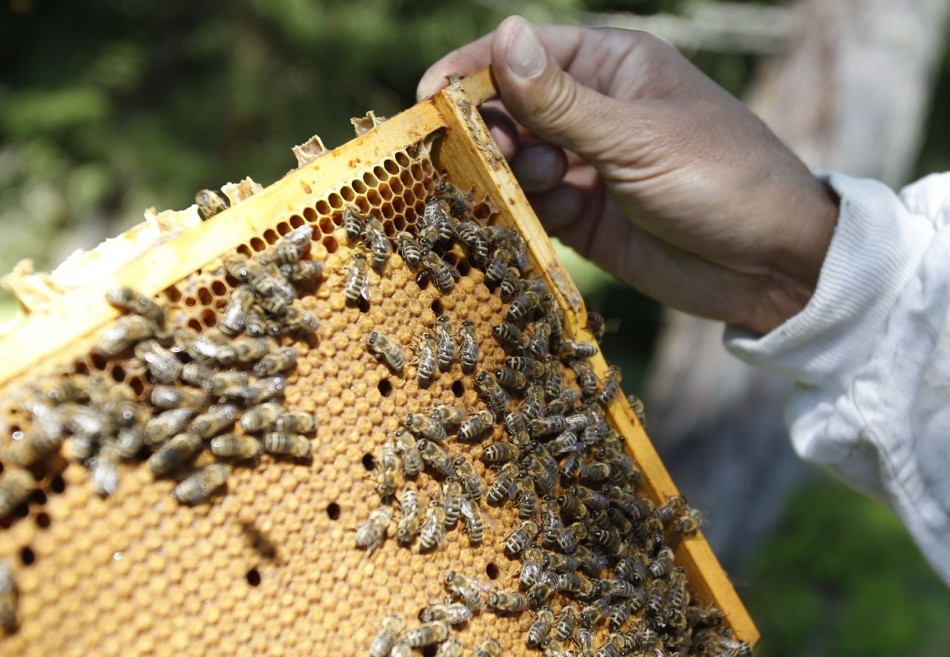 The number of honey bee colonies fell by almost 12% across 29 countries last winter (Reuters)
The number of honey bee colonies fell by almost 12% across 29 countries last winter (Reuters)Beekeepers in the countries surveyed – including most European nations, as well as Algeria and Israel - reported that out of 400,000 colonies, 11.9% did not survive the winter, while cases of whole colonies perishing because of problems with their queen were more common than expected.
The preliminary findings showed that loss rates varied considerably between countries, with western European countries like Ireland, Northern Ireland, Wales and Spain taking the biggest hits in contrast to the previous year when the highest loss rates occurred in central and eastern European countries. The proportion of colonies lost over the winter of 2013/2014 stood at 9%.
"The crucial role of honey bees in crop pollination means that maintaining colony numbers is of great importance to agriculture, the economy and food security", says Dr Alison Gray, of Strathclyde's Department of Mathematics & Statistics, a partner in the study.
"Honey bees also pollinate many flowering plants and trees important for other wildlife, and so have a vital role in maintaining the natural environment and biodiversity. Our research with COLOSS studies the levels of colony losses and potential drivers of colony decline, including management practices, pests and diseases and environmental factors", she adds.
Low temperatures over the spring and early summer months of 2015 in Norway, Scotland, Sweden and Denmark in particular may have had an adverse effect on colony development resulting in high numbers of dead colonies
It has become increasingly important to keep track of managed honey bee colonies. A 2015 study published in Nature Communications found that wild bees are playing as big a role as domesticated honey bees in pollinating food crops across the globe because of the significant decline in healthy honey bee colonies over the last 50 years.
The research showed that a small proportion of wild bee species – just 2% - was responsible for 80% of crop pollination globally, a serious threat to future food security given that not enough is being done to protect the health of wild pollinators and the fact that their numbers are difficult to measure.
Another study published in the journal PLoS One found that Europe has a deficit of around 13 million managed honey bee colonies – equivalent to around 7 billion bees – compared to what it needs to adequately pollinate all of its crops.
0 Response to "Over one in 10 honey bee colonies in Europe perished last winter"
Post a Comment